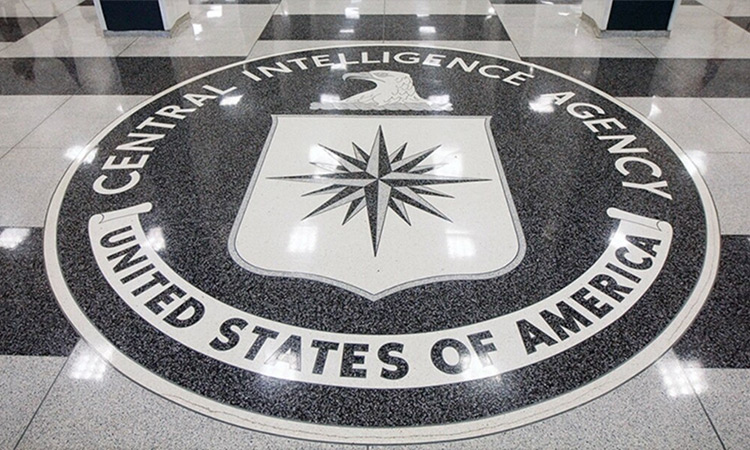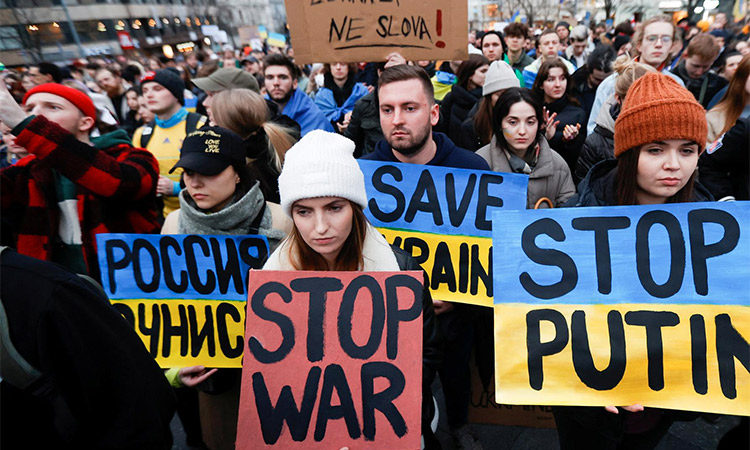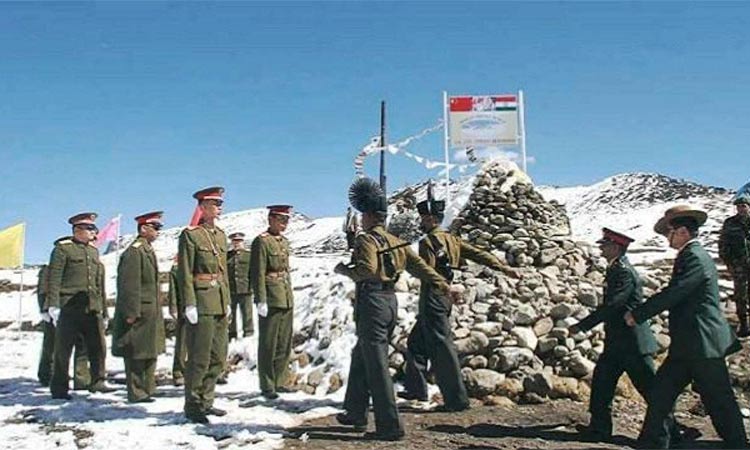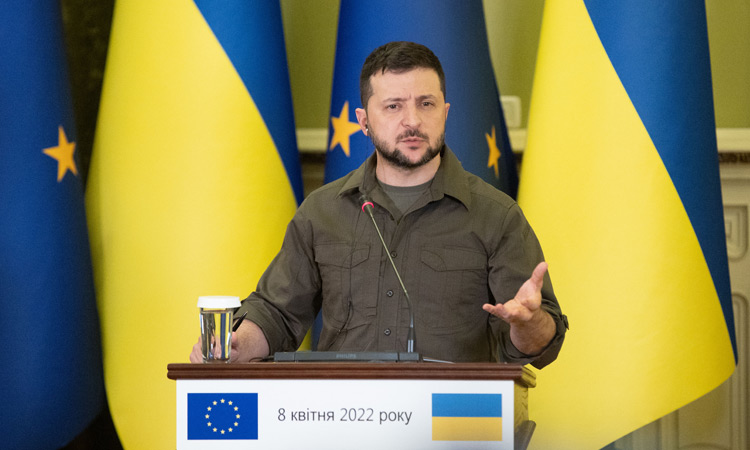Americans getting impatient over Ukraine war

Michael Jansen
The author, a well-respected observer of Middle East affairs, has three books on the Arab-Israeli conflict.
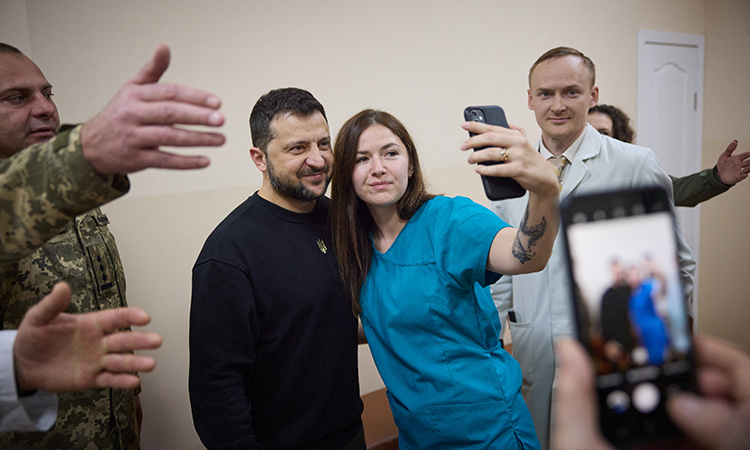
Ukraine's President Volodymyr Zelenskiy poses for a picture with staff of a military hospital in Mykolaiv, Ukraine. Reuters
Money is not the only problem. Ukraine’s allies are running out of ammunition to give to Ukraine in its war against Russia. US Admiral Rob Bauer, who chairs NATO’s military committee, has said “the bottom of the barrel is now visible.” He urged governments and arms manufacturers to “ramp up production.” Adhering to the Western tradition of warfare, Ukraine fires thousands of shells every day, most of which are donated by NATO.
European members of the alliance are not spending the US-demanded two per cent of GDP on defence because they did not expect another war in Europe. But, that’s what they got when NATO advanced eastwards to the Russian frontier and ignored Moscow’s repeated warnings that Ukraine was a “red line” across which NATO must not cross.
Russia is far better situated to step up weapons and munitions production and its troops are deployed along a defensive line in bunkers and trenches and do not need as much ammunition as Ukraine’s attackers.
The main problem with Ukraine is that Kyiv knows no bounds. Not where munitions are concerned and not where money is concerned. President Volodymyr Zelensky travels the world gathering bombs and bucks. So far, the Biden administration has delivered $113 billion and President Joe Biden is asking Congress for another $24 billion. However, he might get $6 billion in a special funding bill to tide Zelensky over until mid-November when, it is hoped, the US will resolve its funding crisis which threatens to close down the government. Europe has promised another $5.3 billion as a stop gap.
The US public is growing impatient with the Ukraine war. A Reuters poll conducted this month showed that 41 per cent of US citizens believe more weapons should be sent to Ukraine while 35 per cent oppose. In May, a Reuters poll showed 46 per cent favoured arming Ukraine 29 per cent opposed.
There has, of course, been a multiplicity of polls with sometimes confusing results.
In August, a CNN poll revealed that 51 per cent of respondents said the country had done enough while 48 per cent argued that the US should do more. Only 17 per cent backed any direct US military involvement and support for imposing sanctions on Russia was falling. In the run-up to the war, only 34 per cent of US citizens knew where Ukraine is located on the map of the world – next to Russia.
There is concern that if Donald Trump were to win the presidency in 2024 he would halt US support for the war. In the polls, he is running neck-and-neck with President Joe Biden who was, and is, the chief advocate of US and NATO backing for Ukraine.
In Europe the pro-Ukraine camp is beginning to have doubts, In Slovakia, a pro-Russia party has won elections on the basis of campaign promises to end military backing for Ukraine. In Poland, which held elections on October 15, there is growing discontent with the war. Farmers have castigated the government for failing to halt the inflow of cheap Ukrainian grain which is undercutting the price of local supplies. Poland has, so far, been a major supplier of weapons to Ukraine and has served as a key conduit for the delivery of other Western arms to Ukraine.
The US and its partners defend the Ukraine war as a moral imperative. They claim Ukraine is a brave democracy fighting for freedom against the Russian aggressor. That line plays well in the West where Russia has been demonised and portrayed as a Communist threat to the so-called Free World since World War I – yes World War I, not World War II.
Britain, the US, France and several other countries invaded northern Russia in 1918 to fight on the side of the White Russians against the Red Bolsheviks. The fighting continued until 1920 when British public opinion called for an end to fighting in the frozen wastes of Russia.
This little known episode explains to a certain extent Russian paranoia about Western intervention in Mother Russia and build-up in neighbouring countries which Russia used to construct the Soviet Union buffer zone after World War II. This buffer zone disappeared when the Soviet Union was dissolved in 1991.
It is significant that last month NATO Secretary General Jens Stoltenberg admitted that NATO’s expansion was relevant to the war. He had previously claimed it was irrelevant. He revealed that in the 2021 run-up to the war Russian President Vladimir Putin send a draft treaty to NATO which promised no more NATO expansion. Stoltenberg told the European parliament on September 7th, “That is what he sent us. And [that] was a precondition for not [invading] Ukraine. Of course, we didn’t sign that. (Putin) went to war to prevent NATO, more NATO close to his borders.” Indeed! Writing in Responsible Statecraft, Branko Marcetic warned against refusing to admit this as a “foundational cause of the war” the US and NATO “will continue to fail to end it and secure a lasting peace, leading to many more Ukrainian deaths and to many more years of living in the shadow of global catastrophe.”
